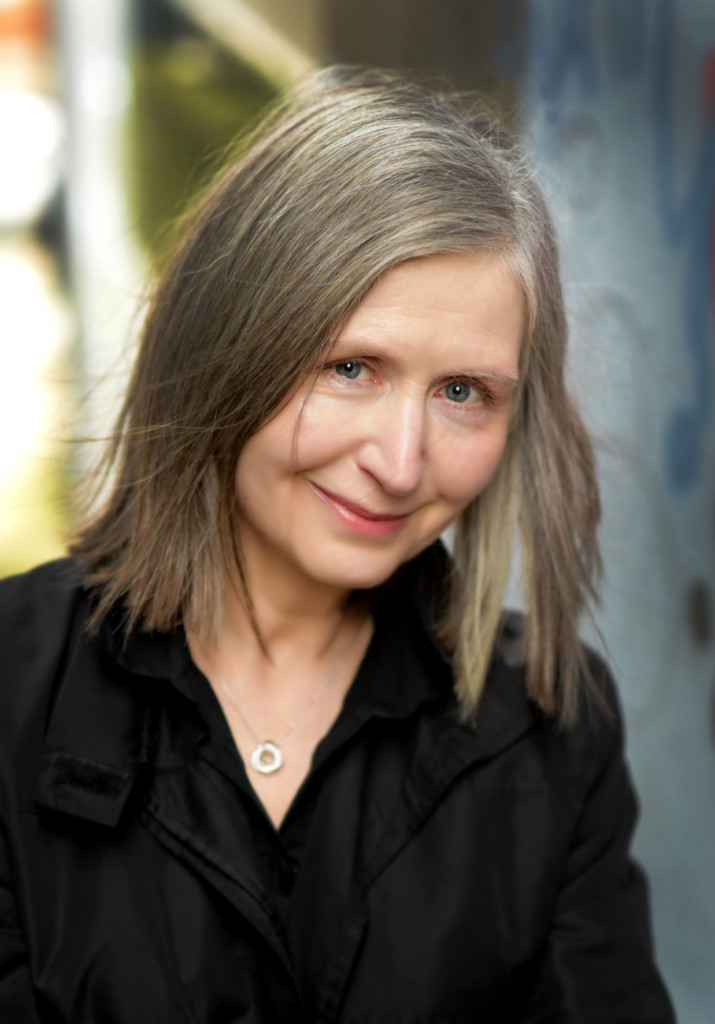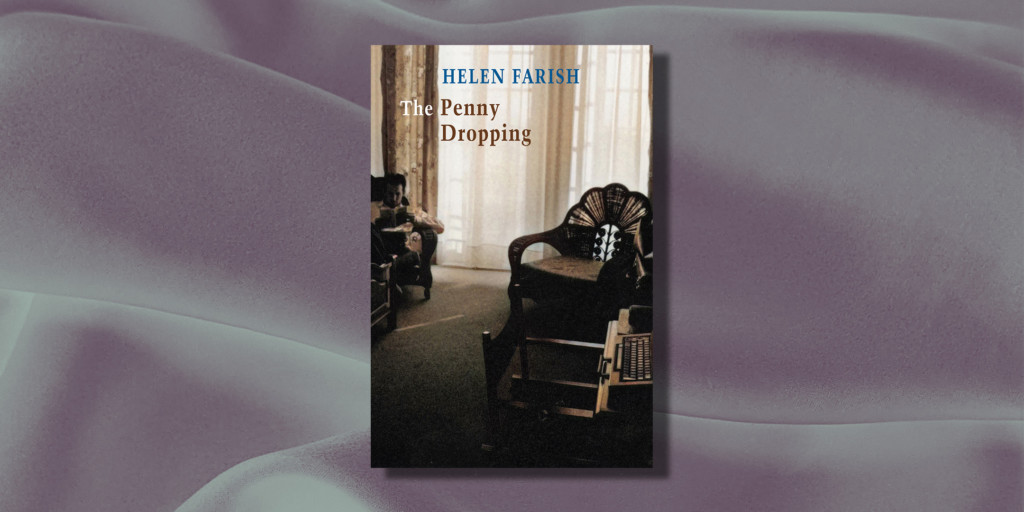Welcome to our Writers’ Notes for the 2024 T.S. Eliot Prize shortlist. These are educational resources for poets looking to develop their practice and learn from some of contemporary poetry’s most exciting and accomplished voices. Here’s Helen Farish on her collection The Penny Dropping.
Patience…
When thinking about the genesis of The Penny Dropping, I remembered a group of about forty poems I wrote several years ago on the same subject. I sent a small handful out for publication, but some instinct made me hold back in terms of pursuing publication of the whole. It wasn’t an easy decision since I was initially excited about the sequence, but upon returning to it after a period, I knew I wasn’t fully inhabiting the narrative voice. I’m very glad now that I discarded that earlier ‘ghost’ collection and waited. And time spent writing any poem, even unsuccessful ones, is time well spent; something is always learnt. I see now that the earlier attempt was simply a tilling of the soil for the poems which eventually formed The Penny Dropping. In the intervening years my poetic technique had developed to the point where I felt I had the skills to better handle the emotional content of the narrative and to expand the ambition for the book. So something I always advise is never to rush into publishing. Once a work is published, you can never ‘unpublish’ it.
When the poems which make up The Penny Dropping started to arrive, I was half-way through another manuscript, but I set that aside in order to concentrate on this new sequence. I set myself the goal of a book-length narrative and having this goal both drove me on and made the writing experience feel wonderfully expansive. I had the space to follow where the poems wanted to go. Usually, I write a poem then work on it until I feel I can do no more, but my writing practice had to change with this sequence. The poems came so fast, and I was afraid of interrupting the flow, so I typed up new drafts at the end of each week (I write longhand) and set them aside until the time came to shape the whole into a book. I then had about eighteen months for the redrafting.
What the Poem Wants
I love redrafting as much as I love writing the first draft. With my last book, The Dog of Memory (Bloodaxe, 2016), I was concerned with formal verse – terza rima, quatrains, sonnets – and with increasing the musicality of the writing. If your aim is to make a 20-line draft into a sonnet, for me the pre-existing form makes it easier than with the drafts of The Penny Dropping where I moved away from all stanzaic form. If the poem is a single block of text which can be any length, how do you ensure that no words or lines are extraneous? In the editing process, something I always do is look at lines individually, lift them out of their context and ask if they are pleasing, or do they feel squashed, does more air need to be let in? And if a group of lines are persistently refusing all attempts to sit well in a poem, I’ve learnt that this almost always means they should be cut. One example of this is the poem ‘That Route’ from The Penny Dropping. The poem’s original title as well as four lines in the body of the poem itself were about a book I remembered from childhood. But when I gave up labouring over the lines, trying yet again to make them embed in the poem and finally deleted them, the poem suddenly had a clean through-line and really sang in a way it hadn’t previously. I could almost hear the poem breathing a sigh of relief and it was a reminder yet again to always be attuned to what the poem itself wants, not what you want for the poem. I don’t think there’s a simple answer to how you know when a poem is ‘finished’. With ‘That Route’, for example, I felt like a violinist who has been struggling to tune their instrument and suddenly the intervals ring out harmoniously, but on other occasions, I simply keep re-reading a poem until I’ve re-read it many times without feeling the impulse to change it in any way.
Read.
In the late 1990s I enrolled on several courses with The Poetry School which were critical in my growth as a poet, especially the study of versification which gave me tools I have used ever since. There was a strong emphasis on the importance of beginning any writing session by reading poetry you admire, poetry you feel has something to teach you, and this is something which became firmly embedded in my writing routine. So even if I only have an hour to devote to writing, I will always spend some of it reading. The reading might inspire a new poem of my own; if not, there is always work to do on something I wrote last week or last year (or the year before that). Showing up regularly is important, even when you don’t feel like it. My piano teacher instilled into me how much more beneficial it is to do half an hour’s practice a day rather than three hours the day before your lesson; somehow the daily half hours add up to more than the sum of their parts. This principle applies to poetry too. If you’ve squeezed in your half hours during the week and then find yourself with a much more generous block of time, you are primed to go.
Giving Yourself Permission
No one is going to tell you to put poetry first, either on a daily basis or more generally. In fact, the world is going to ask you to do everything but. What is urgent is always going to trump what is important (i.e., your writing) unless you summon all your energy and determination to carve out regular time to pursue your craft and your ambitions for your craft. There’s a simple rule that what you pay attention to grows, and so I keep the world at bay until after lunch, and my blissful writing mornings make me a much happier person for the rest of the day!

Helen Farish has published four collections: Intimates (Cape, 2005), Nocturnes at Nohant: The Decade of Chopin and Sand (Bloodaxe, 2012), The Dog of Memory (Bloodaxe, 2016) and The Penny Dropping (Bloodaxe, 2024). Intimates won the Forward Prize for Best First Collection, was shortlisted for the T. S. Eliot prize and was a Poetry Book Society Recommendation. Her poetry also appears in The Poetry Pharmacy and The Poetry Pharmacy Forever (ed. William Sieghart) as well as several Forward Anthologies. Recent poems have appeared in the TLS. She completed an MA in Humanities at Oxford Brookes University and was awarded a Studentship to pursue a PhD thesis on the poetry of Louise Glück and Sharon Olds. She subsequently taught Creative Writing and Twentieth Century American Poetry at the universities of Sheffield Hallam and Lancaster. She spent six months researching American women’s poetry and feminist theory at the University of New Hampshire and has also been a visiting lecturer at Sewanee University, Tennessee. In 2005 she was poet-in-residence at The Wordsworth Trust and more recently was poet-in-residence at the Centre for Cycladic Arts (Greece).

Add your Reply
You must be logged in to post a comment.